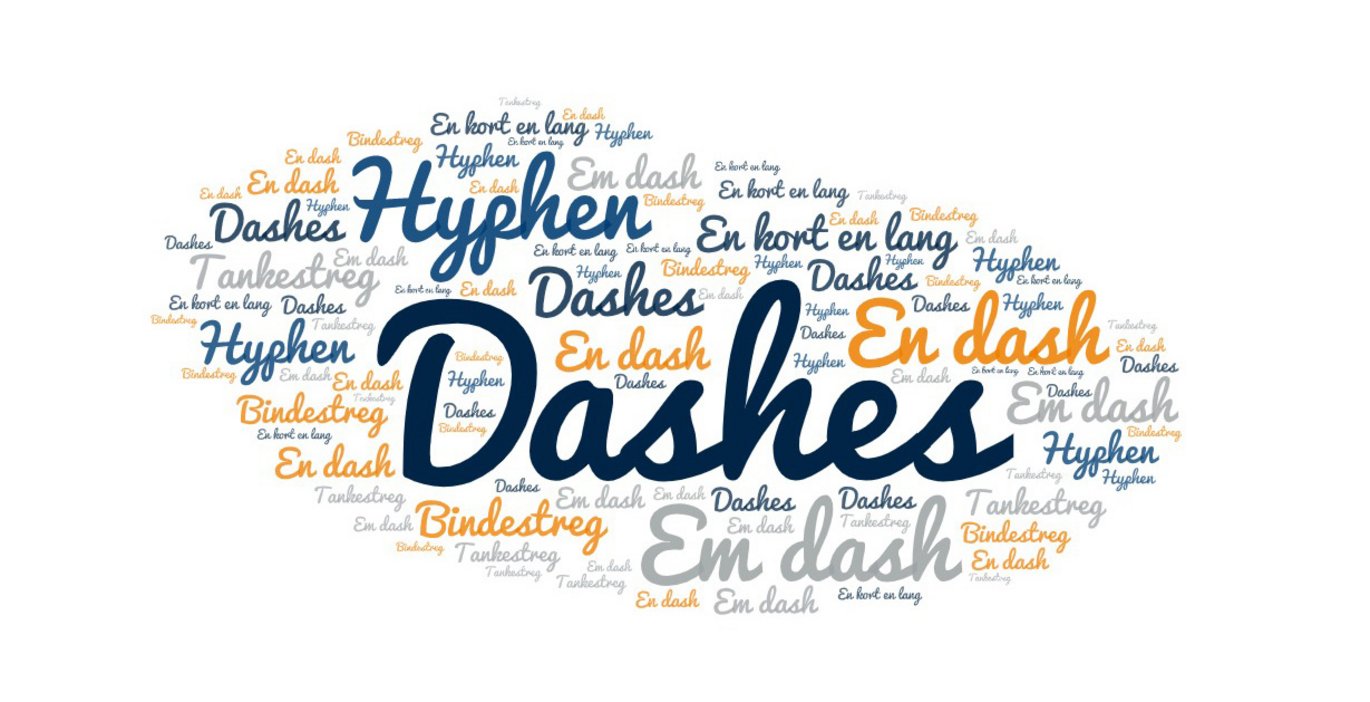A line is not just a line
On hyphens and dashes

They might all look like lines on a page, but hyphens and dashes have very different purposes. Visually, hyphens are shorter (-) than dashes (–). In American English, you will also find an extra large dash (—).
While hyphens are used to join words together, dashes can used to add parenthetical statements or comments in much the same way as you would use brackets. Dashes can – in other words – be used to indicate an interruption.
Danish term | English term | Character | Example |
|---|---|---|---|
Bindestreg | Hyphen | - | T-shirt |
Tankestreg (short) | En dash | – | An en dash is – as opposed to a hyphen – longer and is written with space before and after. |
Tankestreg (long) | Em dash | — | The em dash is basically used the same way as the en dash — but is primarily seen in American English. |
Note:
In Danish, we use a hyphen between words or numbers meaning ’from-to’:
- Butikken er åbent fredag-lørdag.
- I skal læse s. 12-24.
In English, we use the ’en dash’ instead:
- The shop is open Monday–Friday.
- You must read pp. 12–24.